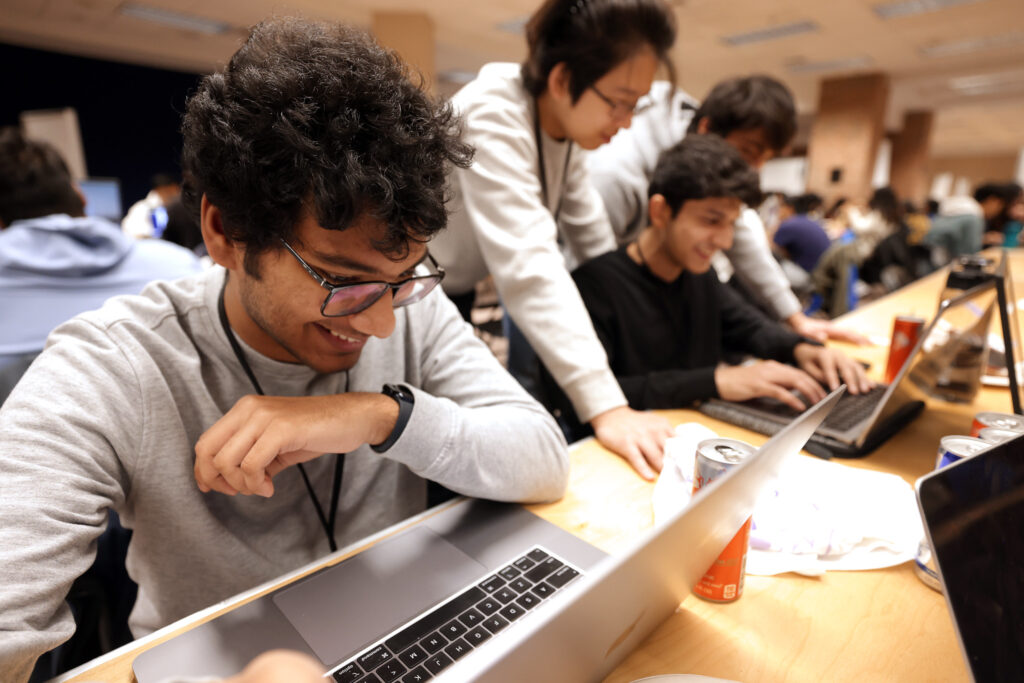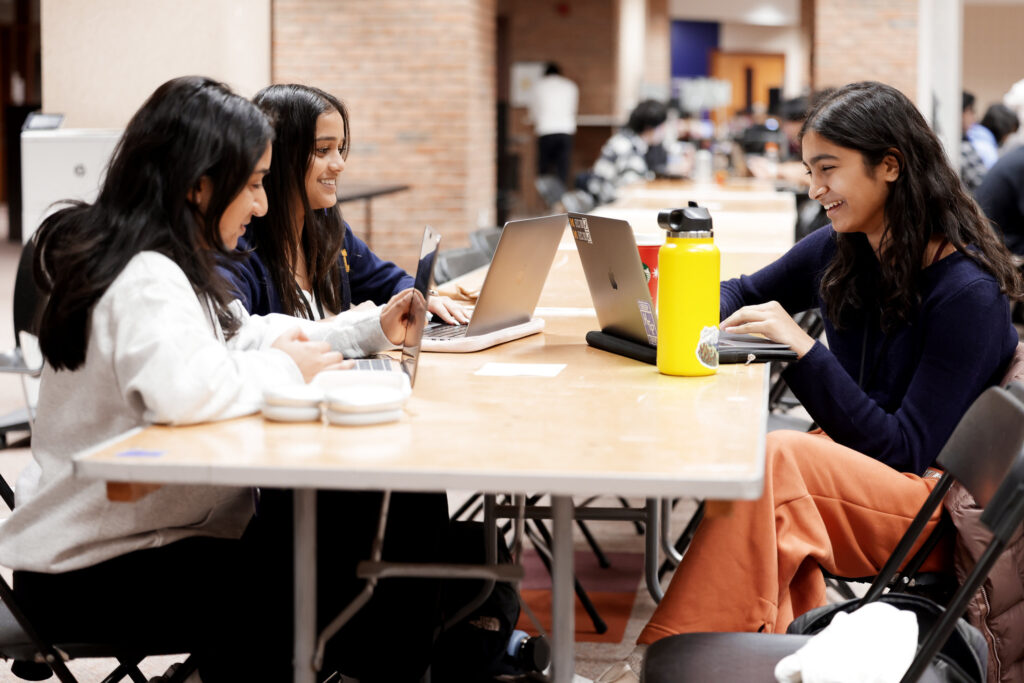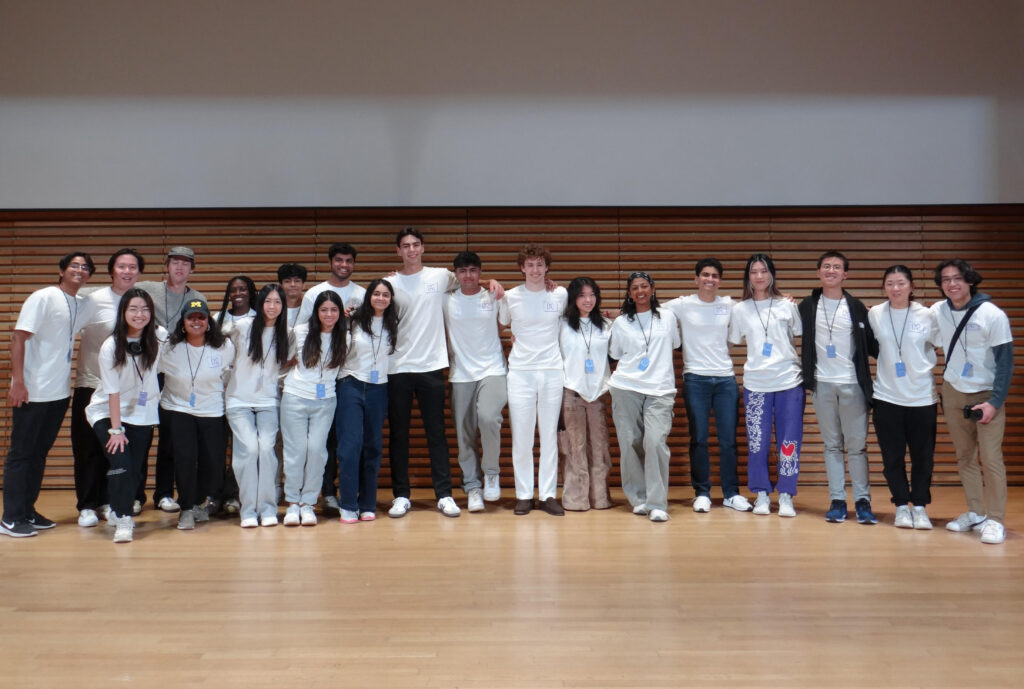MHacks: AI-powered interior design assistant wins Midwest’s largest student-run hackathon

More than 500 students from across the US and Canada spent the weekend on the University of Michigan’s North Campus frantically coding, collaborating and caffeinating at MHacks, the hackathon that helped launch a movement a decade ago.
Hackathons task teams with designing and building a new tech solution from scratch in a very short amount of time—in this case, just 24 hours.
MHacks evokes scenes of caffeine-fueled all-nighters, where students cram into lecture halls, arenas, and even—in one memorable instance—the Big House, to code through the night and bring their ideas to fruition.
Today MHacks is the largest university hackathon in the Midwest. In 2013 it broke a world record with 1,200 attendees. By the following year, it had helped to spawn a nationwide increase in these events, considered by some a sport for tech-minded college students.
At this year’s event, the first in-person since 2019, students filled the halls of Duderstadt Center, hailing from universities as far-flung as Harvard, University of Toronto, University of Southern California, Princeton, University of Texas at Arlington, University of Illinois Urbana-Champaign, and many more.
“We are so thrilled about the number of amazing projects that came out of MHacks this year,” said Adviti Mishra, U-M student and MHacks organizer. “From AI to cybersecurity to hardware, participants built some really exciting, forward-thinking solutions.”

This year’s MHacks winners demonstrate the creative output hackathons can generate.
- First place: DECO.ai is an interior decorating assistant developed by University of Michigan computer science and physics students. It harnesses the power of artificial intelligence and neural networks to generate 3D visualizations of rooms, allowing users to arrange and design their homes virtually.
- Second place (by BNY Mellon): Terminal.AI, is a tool designed by students from Michigan State University to help software developers and programmers. It uses generative AI to provide error explanations and solutions in the terminal itself, rather than forcing the user to look them up on the web and lose valuable time.
- Third place: VSAT, created by a team of first-year Michigan Engineering students, lets students take practice SATs in an environment that’s similar to the one they’d take the actual test in.
“One of the most amazing things about MHacks this year is the diversity,” said Harry Sanders, M-Hacks organizer and U-M undergrad, at a closing ceremony celebrating the winners on Sunday. “The fact that we were able to bring together this community with people from all across the country, from dozens of universities, with so many different interests, languages, cultures, and backgrounds is really special.”
At the MHacks closing ceremony, a representative from Major League Hackers (MLH), the official collegiate hackathon league, commended the ingenuity of the winners and thanked the event’s team of student organizers for their incredible efforts in bringing MHacks back.
“I can’t say that I’ve been to a hackathon that has such a strong community and presence, especially in light of such a long hiatus,” said MLH rep Minjeong Kim. “The energy that everyone brought over this weekend, the sheer turnout and the number of creative solutions that were built was really unbelievable.”
Also supporting the event were more than 50 volunteers from the U-M community and presentations from sponsors including Capital One, Uber, Warp, Grainger, CAT, Ramp, U-M Information and Technology Services, and more.

“We couldn’t be more grateful to this year’s amazing sponsors and the positive impact they had on the event,” said MHacks organizers and U-M undergrad Derek Miller. “By sponsoring, they supported student projects, promoted their brand, and connected with promising hackers for potential internship and full-time positions.”
To the organizers, this is only the beginning of a continuing legacy for MHacks.
“This year’s MHacks really highlighted the importance of coming together and building community as a means of fostering creativity and innovation in tech,” said organizer and U-M student Spencer Goodwin. “We can’t wait to see MHacks continue to expand and the amazing builds that come out of it in the future.”

 MENU
MENU 
